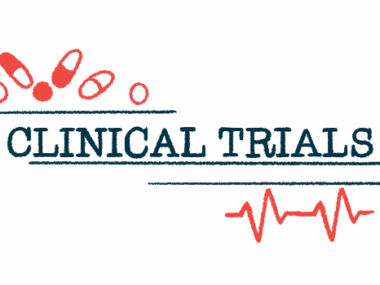Haduvio for IPF chronic cough wins new patent in US
IP protection for Trevi therapy expected to run through 2039
Written by |

Trevi Therapeutics has won approval of its patent application for Haduvio (nalbuphine extended-release tablets), an investigational treatment for chronic cough in people with idiopathic pulmonary fibrosis (IPF).
The notice of allowance approving the application was issued on March 7 by the U.S. Patent and Trademark Office. The future patent is anticipated to be valid until 2039, and Trevi expects it to be listed in the Orange Book, the catalog of medications approved by the U.S. Food and Drug Administration.
“We are pleased with this allowance of claims to further secure IP [intellectual property] protection for Haduvio through 2039 for the treatment of chronic cough in IPF,” Jennifer Good, president and CEO of Trevi, said in a company press release.
IPF, or pulmonary fibrosis of unknown cause, is a progressive disease characterized by the formation of scar tissue (fibrosis) in the lungs. Such scarring affects proper lung function and leads to symptoms such as shortness of breath and low blood oxygen levels.
Chronic cough also is a common symptom of IPF, and is well known to affect patients’ quality of life. To date, there are no specific therapies approved for cough caused by IPF, and common cough medications often are not effective in treating it.
Haduvio is a formulation of nalbuphine, a pain medication that has been approved for more than 20 years in injectable form. Unlike the original pain medication, Haduvio is administered orally in the form of extended-release tablets.
The therapy works by modulating the activity of specific cell receptors — blocking mu-opioid receptors and activating kappa-opioid receptors — that are known to be important in the control of coughing and itching. Although it modulates opioid receptors, injectable nalbuphine is not considered a controlled, or scheduled, drug by the Drug Enforcement Administration.
We are pleased with this allowance of claims to further secure IP [intellectual property] protection for Haduvio through 2039 for the treatment of chronic cough in IPF.
The safety and efficacy of Haduvio in IPF patients was evaluated in the Phase 2 CANAL trial (NCT04030026), completed in 2022, which enrolled 38 adults. Participants received either a placebo or increasing doses of Haduvio for three weeks, before stopping for two weeks. Afterward, both groups switched treatment, receiving Haduvio instead of the placebo or vice versa, for another three weeks.
Top-line results showed that Haduvio was effective against IPF-caused cough. Daytime cough frequency was reduced by 75.1% with Haduvio, compared with 22.6% with the placebo. Further data analyses showed that almost all patients (97%) who received Haduvio had their 24-hour cough frequency reduced by at least 30%, compared with 35% of those receiving the placebo.
Safety results also were positive, with no reported serious side effects deemed related to Haduvio. The therapy’s general safety profile was consistent with that of previous studies, with the most commonly reported adverse events including nausea, fatigue, constipation, dizziness, sleepiness, vomiting, headache, anxiety, and depression.
Trevi is planning to file additional patent applications to further cover the use of nalbuphine extended-release tablets in IPF and other diseases that cause chronic cough.
“We expect that this allowed patent application when issued will provide important protection along with the already issued formulation patents and other patent applications that we are prosecuting,” Good said.






